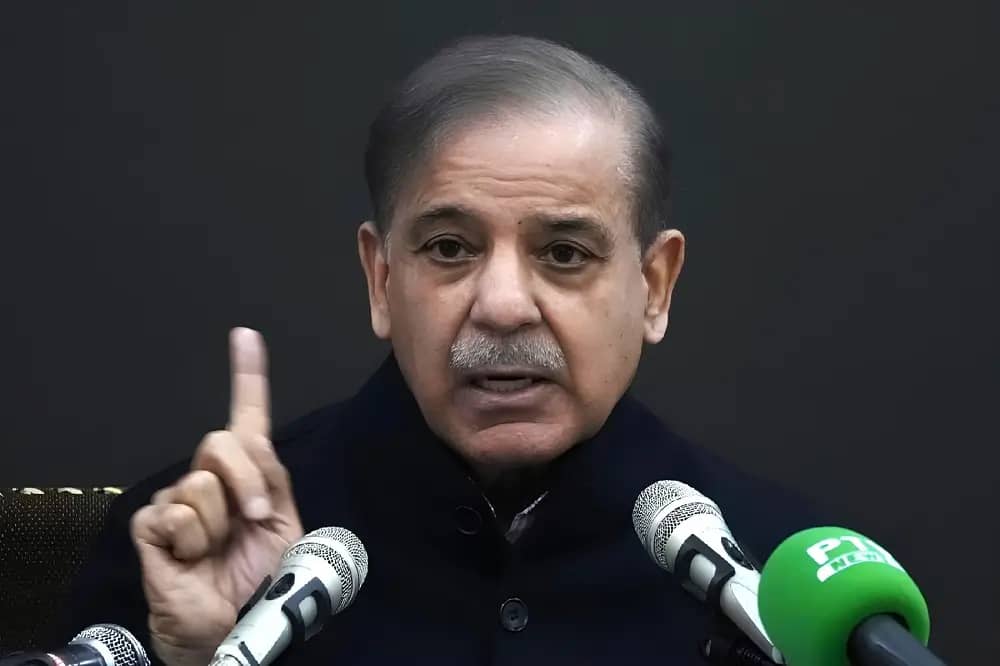In his first address after assuming office, Pakistan’s Prime Minister Shehbaz Sharif stirred controversy by equating the Kashmir issue with the situation in Palestine. This statement, made during his inaugural speech, reflects a long-standing stance of Pakistan regarding the Kashmir conflict. Shehbaz Sharif emphasized the need for solidarity with Kashmiris and Palestinians, calling for resolutions supporting their freedom.
This rhetoric echoes Pakistan’s consistent stance on international platforms concerning the Kashmir dispute. Despite pledging to improve relations with all nations, including neighbors, Shehbaz’s remarks on Kashmir indicate a continuation of Pakistan’s traditional policy.
Also Read : Dhaka Fire Tragedy: 46 Dead in Multi-Storey Building Blaze
The absence of specific mentions of India in his speech may hint at a cautious approach towards bilateral relations. It is noteworthy that Shehbaz’s party, the Pakistan Muslim League (Nawaz), has shown inclination towards improving ties with India, primarily for economic reasons.
However, the role of the army remains pivotal in shaping Pakistan’s foreign policy, especially concerning India. Shehbaz’s emphasis on equality in relations with neighbors reflects a diplomatic tone, likely aimed at maintaining stability within Pakistan. The absence of a direct response from India to Shehbaz’s remarks suggests a familiar pattern in the Indo-Pak dynamic, characterized by cautious engagements and occasional escalations.
The Modi government’s approach towards Pakistan has typically been cautious, with political gains often prioritized over direct engagement. Despite Shehbaz’s previous calls for talks, the longstanding issues, such as the revocation of Article 370, remain significant obstacles to bilateral dialogue. Overall, Shehbaz Sharif’s inaugural address sets the tone for Pakistan’s foreign policy under his leadership, balancing diplomatic overtures with longstanding positions on contentious issues.






